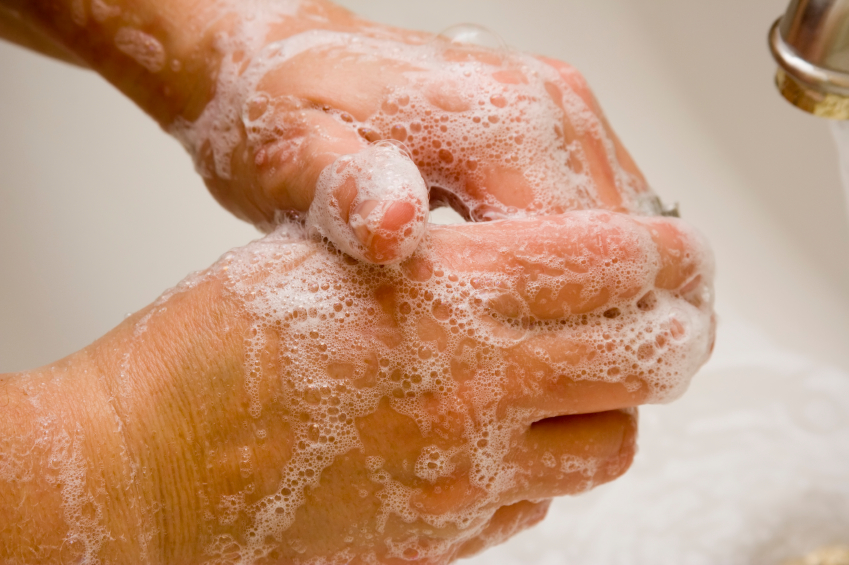
Palm Sunday of the Lord’s Passion
I saw a meme last night about the Last Supper taking place over a Zoom; it was Da Vinci’s famous panting, except Jesus was sitting alone, and the other Apostles’ faces were up at the top in their own boxes for the video call. This
quarantine situation has certainly inspired some creativity while people are stuck at home. I’ve seen a few clever ones, but one of the funniest ones was a picture of Pontius Pilate washing his hands with a caption about good coronavirus hygiene.
We mention Pontius Pilate every Sunday during the Creed at Mass, yet for most of us when we think about the story of Jesus’ Passion and Death, we don’t give much thought to Pilate and his role. The detail about him washing his hands from this Palm Sunday Gospel says a lot about him. He was the Roman governor, and ultimately the buck stopped with him. The Jewish leaders who were calling for Jesus’ death, but Pilate had to be the one to make the call. In this situation, he had to worry about what the Jewish people thought of the Romans that there wouldn’t be a riot, similar concerns for the followers of Jesus and what they would do, and also how his Roman superiors would have felt he handled the situation. Ultimately Pilate gave in to the pressure from the people, and in an effort to satisfy them and keep the peace, he sent Jesus to be crucified. He washes his hands, as a way to distance himself personally from the decision that he made out of authority.
And then for us; when we mediate on the Passion, we might place ourselves in the story as someone in the crowd, or John standing at the foot of the Cross, or Peter who had denied Jesus three times. But take a moment and picture yourself in the role of Pontius Pilate. How many things in our lives do we “wash our hands” of while Jesus is standing right in front of us? How often have we been asked a favor that would really inconvenience us, and we “wash our hands” and decline to help, rationalizing to ourselves all the reasons why we have more important things to do? How many times have we passed by a homeless person in a big city and “washed our hands” of the responsibility of helping them, because we don’t know what they would do with the money? How often have we felt the Holy Spirit and our conscience nudging us to talk to the person with few friends at school who seems to be having a rough day, but we “wash our hands” and go back to talking with our own friends? “Washing our hands” doesn’t get us off the hook in any of these situations, even if we tell ourselves it does in some way.
My favorite line in this Gospel comes right after that – the crowd, who in this case, is actually more than willing to take responsibility for sending Jesus to death, cries out, “His blood be upon us and on our children.” They call down a curse upon themselves in saying that; but in reality that’s exactly the plea that they needed to make and that we need to make – asking that the Blood of Jesus be upon us and on our children, bringing healing, salvation, and new life.
This Holy Week while you’re stuck at home, don’t let the week go by without prayerfully entering into the week. Whether you read some reflections, watch some videos, pray with one of the Masses streaming from your Parish, pray the Stations of the Cross with your family in the back yard, or take some extra time to reflect in your room – Jesus is still calling us to come close to him during this week, and wants to bring us new life on Easter. If we are intentional about this week, even though we can’t be together in the Church, we can still have the most powerful experience of Holy Week and Easter we’ve had yet!




